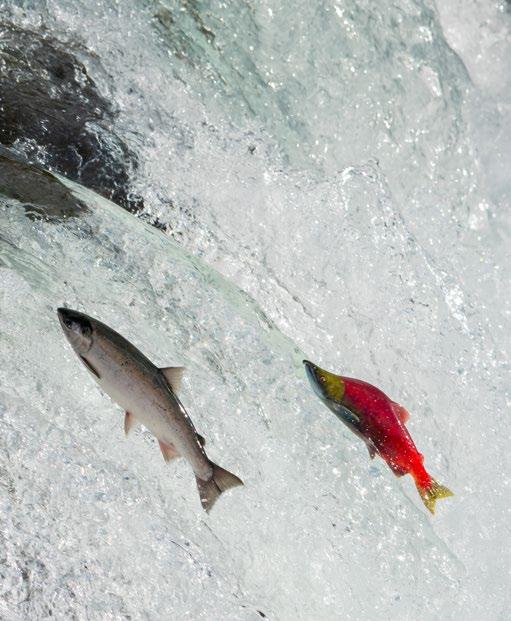








From the moment you step on board, Helijet’s luxurious Citation X business jet is ready to go. This roomy jet can whisk up to 8 passengers in quiet luxury anywhere in North and Central America nonstop... including Hawaii. Your time is valuable, and the Citation X is one of the fastest corporate jets in the sky, with a spacious cabin and amenities that allow you to work smart en route...or just lie back, relax, and recharge.


• Full phone wi-fi, internet and streaming movie service at each seat
• Ample temperature-controlled luggage and cargo compartment
• Private washroom and lavatory facilities
• Up to 8 club-style cabin passenger seating
• Arrive fast, refreshed, and ready for whatever the day (or night) has to offer
• Helijet’s Citation X can also take you from Vancouver to anywhere in Europe with a single fuel stop on the way

Contact Helijet’s Charter Services and let us know where you need to be and when you need to be there, then leave the rest to us.
For additional information or a quotation please contact us at:
between

In-Flight Review Magazine
Publisher/Editor:
Garth Eichel
Graphic Design: Brent Foote
Contributors
Garth Eichel, Bob Loblaw, Sue Dunham
For information on display advertising opportunities, email: garth@archipelagomedia.com
Published by
Archipelago Media Ltd.
1248 Woodway Road
Victoria BC V9A 6Y6
Tel 250.882.7878
archipelagomedia.com
Complimentary Copy
ISSN 1916-5080
In-Flight Review
Fall 2024 Vol. 17 No. 3
In-Flight Review (IFR) is a quarterly magazine published by Archipelago Media Ltd. for Helijet International Inc. All published material is the copyright of Archipelago Media Ltd. No part of this publication, in whole or in part, may be reproduced without the written consent of the publisher. The written and photographic material published in In-Flight Review does not necessarily reflect the views of the air carrier or the publisher. Information and images produced in the magazine are believed to be accurate and truthful, but the publisher assumes no responsibility for errors.
Advertising in In-Flight Review magazine does not indicate an endorsement by Helijet International Inc. or Archipelago Media Ltd.

SIKORSKY S-76A
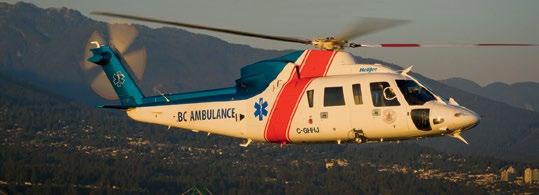
SIKORSKY S-76C+

SIKORSKY S-76C++
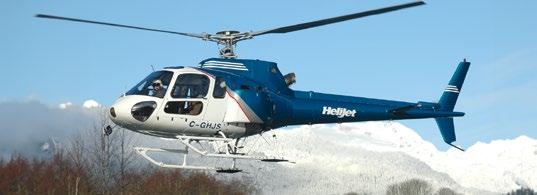
EUROCOPTER AS350 B2 & B3

LEARJET 31A/ER

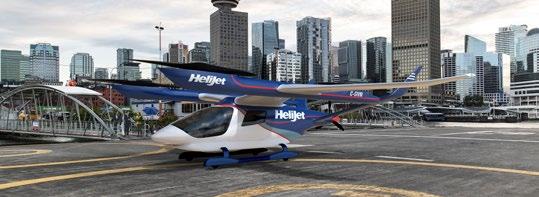
By Daniel J. Sitnam, President and CEO, Helijet International
The first edition of Helijet’s In-Flight Review (IFR) was released on March 1, 2008. Since then, it has served our guests well, delivering informative and entertaining articles on a wide range of stories focussed on the communities we serve.
I am pleased to announce a significant development that will see the publication now become bigger, and even better. On September 1 IFR was acquired by Victoriabased Island Parent Group – a family-run business with a remarkable story and a stable of successful magazines.
Island Parent Group is an Indigenous business owned by Ellice Schneider, who operates it together with her husband, Jim Schneider. Ellice is a successful entrepreneur who was born in Inuvik in the western Arctic. While Victoria is now home, she continues commuting to Inuvik where she also works as the Director of Human Resources for the Inuvialuit Regional Corporation. She also sits on the boards of Aurora College in the Northwest Territories and Canadian North. Her roles at IRC and Canadian North, as well as IRC’s ownership of Aklak Air, have provided her with experience and insight into the transportation sector, including scheduled, charter, and air medical transport.


Ellice first met Jim in 2003 when the two were playing in a slo-pitch league in Fort McMurray. Jim worked in local radio and in 2010 he transferred to Victoria with Rogers to run JackFM and the Ocean radio stations. With two sons of their own (Josh and Jacob), the Schneiders were avid readers of Island Parent magazine. When that publication became available in 2018 the couple jumped at the opportunity to shift from radio to print media. They hung out their shingle as Island Parent Group and began focusing on a family readership. To that end, they acquired WestCoast Families in 2021, and in 2022 they launched Grand, a 50-plus lifestyle publication. They also began producing a digital magazine called Tweens & Teens in 2022, as well as Volunteer Matters, a fundraising publication for Volunteer Victoria. Being family-focused entails giving back to community. The Schneiders have a long history of involvement with local charities and non-profits. Between them they have chaired fundraising campaigns and sat on the board of directors for the United Way in Fort McMurray and Victoria. Jim also sat on the board for Kaleidoscope Theatre for Young People, and he is currently on the board of the of Children’s Health Foundation of Vancouver Island, which runs Jeneece Place at the Victoria General Hospital in Victoria, and Q ʷalayu House at the North Island Hospital in Campbell River. What’s more, Island Parent Group sponsors a variety of school, family and non-profit events such as Habitat for Humanity’s Gingerbread Showcase, the Saanich Fair and Parksville Beach Festival, to name just a few. And with their son, Jacob, training as a competitive swimmer, they also find time to stay active in the swimming community, including previously serving on the board of Island Swimming.




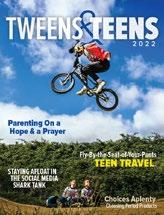
Helijet shares similar values. Regular readers of IFR will know we are a company committed to supporting the communities where we provide service. Like Island Parent Group, we have deep roots with a variety of charities and non-profits, arts organizations and sports teams. And as an air medical transport provider we recognize the need to support our healthcare workers; through COVID restrictions we provided free flights to all healthcare professionals during a challenging time for them.
Healthcare delivery matters, too. That is why Helijet is a front-runner in supporting Helicopters Without Borders (HWB) – a BC-based registered charity status organization. Since 2021, HWB has been delivering health services to rural and remote Indigenous communities in the province with the ultimate goal of ensuring everyone, regardless of location, has access to basic healthcare through the use of aviation technologies.
We also have a special place in our hearts for children and families. One of our favourite annual activities is ferrying Santa by helicopter to visit children at different hospitals, including the Royal Jubilee in Victoria, Nanaimo Hospital, BC Children’s Hospital, the Royal Columbian, Surrey Memorial, and the Abbotsford Regional Hospital. This year will mark our 18th time as Santa’s sweet sled! No surprise then that we respect companies devoted to the places where they do business. For this reason, we are confident entrusting our passenger magazine in the capable hands of Island Parent Group. We look forward to collaborating with Ellice and Jim as they increase circulation and distribution, delivering timely stories of value to a wider audience of readers, advertisers, and decision makers in business and government.
Welcome aboard!



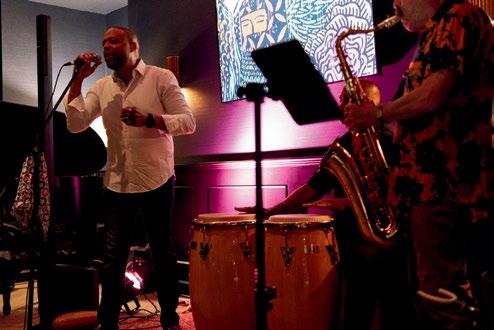




SEPTEMBER 5 — 15
The annual Vancouver Fringe Festival is a celebration of theatre for everyone, showcasing a blend of emerging and established artists. This year marks the event’s 40th anniversary with over 70 performances spanning dance, theatre, comedy, music, and more. vancouverfringe.com
SEPTEMBER 5 — OCTOBER 20
Ever wonder how a group of troublesome blue-collar boys from New Jersey became one of the most successful bands in music history? Jersey Boys is the Tony and Grammy Award–winning blockbuster that tells the true story of the iconic Frankie Valli and the Four Seasons. artsclub.com
SEPTEMBER 7
Take part in North America’s largest Gran Fondo and enjoy cycling the Sea-to-Sky Highway on the one and only day of the year without traffic. From the starting point in Stanley Park to the finish-line festival in Whistler, participating cyclists can enjoy a traffic-free ride over the Lions Gate Bridge and up the scenic Sea-to-Sky Highway. Ride, cheer or volunteer for this one-of-a-kind cycling celebration. rbcgranfondo.com


BARNSIDE HARVEST FESTIVAL 2024
SEPTEMBER 13 — 15
Listen to the music of Glorious Sons, Sam Roberts Band, Loverboy and more. Barnside Harvest Festival offers great music, farm-fresh food and festivities. In addition, the onsite experience will include Delta’s finest craft beer, local wines and ciders, and farm-focused non-alcoholic options. barnsideharvestfest.com
BREWERY & THE BEAST
SEPTEMBER 22

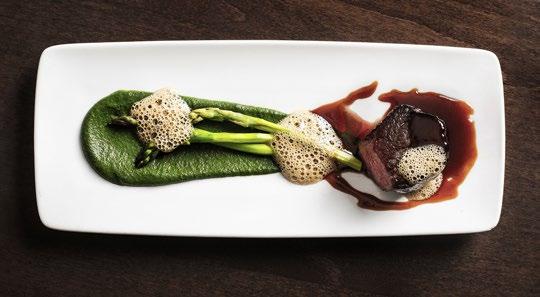
If the smell of barbecue sets your mouth watering then be sure to head to Langford, BC, for this one-of-a-kind festival. This year’s event includes an exceptional lineup of chefs serving a feast of locally raised proteins, using both modern and traditional open-fire cooking techniques. Then quench your thirst with a bevy of yummy craft beers, ciders, cocktails and non-alcoholic options. breweryandthebeast.com
VANCOUVER INTERNATIONAL FILM FESTIVAL
SEPTEMBER 26 — OCTOBER 6

This year VIFF will be doing what it does best: mining and showcasing exceptional international and Canadian cinematic gems. Films will be screened at the beautifully renovated VIFF Centre and other partner theatres. Enjoy an extensive selection of short films and plenty of interactive conversations with experienced industry professionals and rising new talents alike. viff.org



SHELLEY NIRO: 500 YEAR ITCH
SEPTEMBER 27, 2024 — FEBRUARY 17, 2025: VANCOUVER
Shelley Niro: 500 Year Itch is the first major retrospective of work by the multimedia artist Shelley Niro, who grew up on the Six Nations Reserve, near Brantford, Ontario. For more than 50 years, Niro has been creating art reflecting contemporary life and building upon Kanyen’kehá:ka (Mohawk) philosophies, deep understandings of history and a woman-centred worldview. vanartgallery.bc.ca
SEPTEMBER 29 — OCTOBER 12
Vancouver hosts the top six women’s rugby teams in the world this fall at the second annual WXV 1. A prelude to the 2025 Rugby World Cup, this event hosts a total of nine matches played over three consecutive weekends featuring Canada, England, France, Ireland, New Zealand and the United States. rugby.ca
OCTOBER 19
Vancouver Island Symphony kicks off the fall season on October 19 at the Port Theatre in Nanaimo with the popular Dvořák Cello Concerto, and Tchaikovsky’s Symphony No. 6, known as “The Pathétique”. This year marks Vancouver Island Symphony’s 30th “Pearl” Anniversary celebrations. vancouverislandsymphony.com

OCTOBER 24 — 27
Whether you’re looking to simply refresh or completely rebuild, the Vancouver Fall Home Show is a good place to start. Returning to the Vancouver Convention Centre West Building, local exhibitors at this year’s tradeshow can assist with everything from appliances and electronics, to landscaping and construction management. vancouverfallhomeshow.com

A.I.M BY KYLE ABRAHAM
NOVEMBER 15 & 16
Led by acclaimed choreographer, Artistic Director and MacArthur Fellow, Kyle Abraham’s innovative vision, A.I.M, is galvanized by Black culture and history, and grounded in a conglomeration of unique perspectives. A.I.M is one of the most active touring companies in the United States, with an audience base as diverse as A.I.M’s movement vocabulary, which draws inspiration from Modern, contemporary, ballet, and hip-hop. Abraham’s distinct outlook on poignant and relevant issues set him apart from his generation of choreographers as a leading creative force in dance. dancevictoria.com
DECEMBER 4 — 8
Get ready for the thrilling return of the 24th edition of the Whistler Film Festival and Content Summit (WFF24) in stunning Whistler, BC. Events will included film premieres, industry summits, talent programs, parties and special guest appearances by actors and directors. whistlerfilmfestival.com








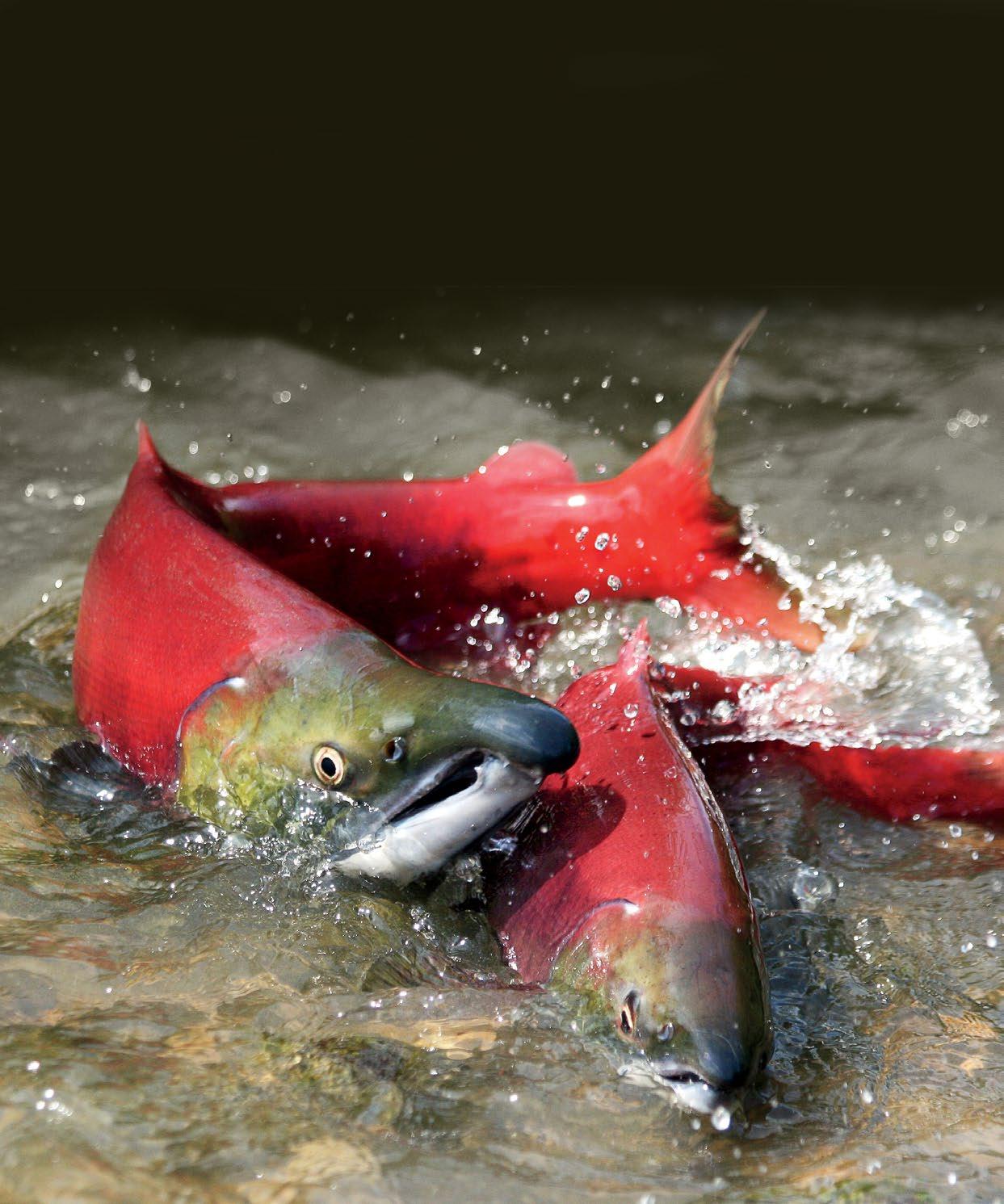
BY GARTH EICHEL
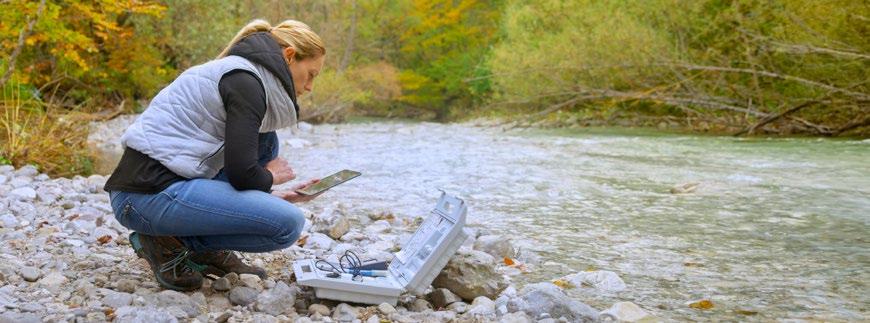
Few spectacles in nature are as
stirring as the sight of wild Pacific salmon returning to spawn in the rivers and streams in which they were born years before. Witnessing the phenomenon is both melancholy and uplifting: it serves as a vivid reminder of our own brief mortality, but also of the magnificent capacity of nature to regenerate itself.
Pacific salmon are tough fish with a remarkable ability to adapt and overcome. Still, they are vulnerable to a range of unprecedented perils – both natural and human – threatening their long-term survival.
“Climate change and its associated complexities is the number one threat to wild Pacific salmon,” says Jason Hwang, Chief
Program Officer and Vice President Salmon Program at the Pacific Salmon Foundation (PSF). “Climate scientists are telling us we’re way outside the natural range. We’re seeing warmer than usual ocean temperatures and increasing drought frequency, often resulting in not enough water in streams and rivers.”
Then there is the threat posed by wildfires – a problem that appears to be getting worse.
“Mega-wildfires are a growing concern,” says Hwang. “Rain doesn’t stay in the soil and ash plugs up streams, destroying habitat.”
He adds that wild Pacific salmon habitat is also affected by urbanization, particularly run-off from pavement chemicals. Agricultural run-off and industrial forestry practices also take their toll.
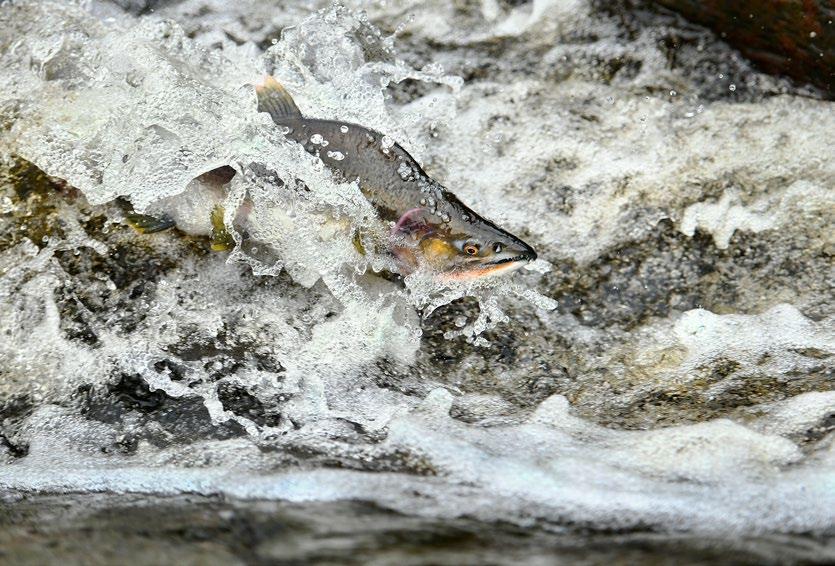


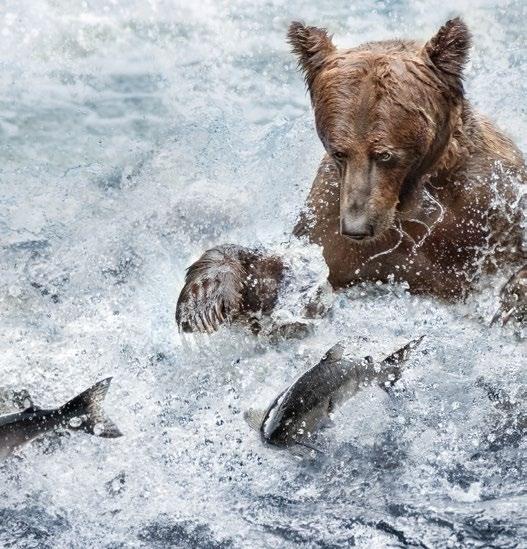
Then there are the risks posed by disease and pathogens.
“Covid showed what can happen when a disease gets into an animal population where there is no natural defence,” says Hwang. “Fish are no different. Populations that are sick or stressed are prone to mortality long before they reach their spawning habitat. For this reason, it’s important to consider the overall health of wild Pacific salmon, rather than just individual threats. The average person doesn’t think about salmon getting sick or stressed; they think about what kills them. But population decline doesn’t always happen instantly. Some populations decline for a variety of reasons that make them less resilient and more susceptible to predation.”
As grim as things might appear, Hwang says the outlook for wild Pacific salmon is not dire. He says the narrative around Pacific salmon often gets caught up

in conflict and debate without considering the myriad success stories, and what is being done to improve conditions.
Some wild Pacific salmon populations are thriving. For example, the Cowichan River Chinook population is stable and showing promising returns, while the South Thompson River saw the biggest Chinook return in history in 2023. Another success story is the Okanagan River where the Sockeye population was down to as few as 5,000 in the 1990s. This year over 700,000 fish are projected to return.
Still, nearby populations with the same species are not faring well. Nobody knows for sure what is happening and why, but there is no denying the decline in some populations.
“It’s complicated,” says Hwang. “There are nuances in different environments affecting the ability of some species to adapt. It’s a roulette wheel of winners and losers.”
Yukon River Chinook are particularly worrisome as the species is on the verge of collapse. In an effort to stem
“Sensational headlines often give the impression wild Pacific salmon are doomed, but this is not necessarily so.”
the decline, both the Canadian and US government have implemented a seven-year moratorium on fishing to give the population one full life-cycle to recover.
Sensational headlines often give the impression wild Pacific salmon are doomed, but this is not necessarily so says Dr. Andrew Bateman, Manager of the Pacific Salmon Foundation’s (PSF) Salmon Health Program: “The wild Pacific salmon story is complicated. The figures we see suggest roughly half of all salmon populations in BC
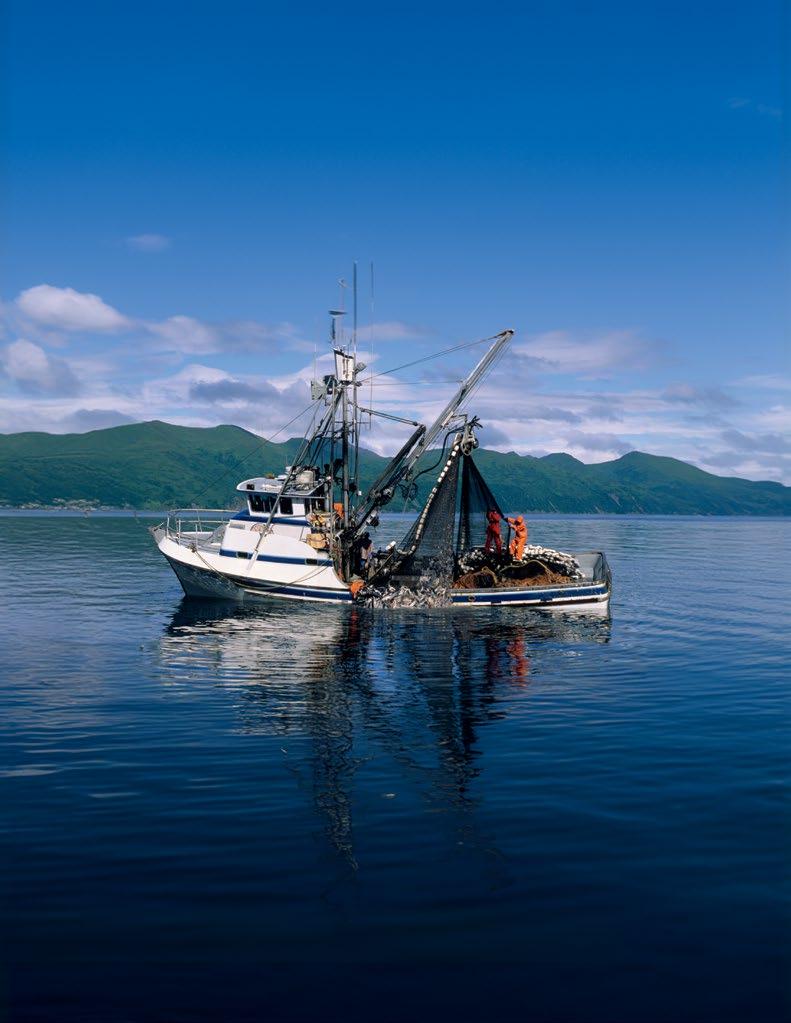
and the Yukon are in decline, while the other half are stable or improving.” He adds, “It would be a mistake to make sweeping generalizations as to why this is without considering the overall health of wild Pacific salmon.”
Until recently, it was near impossible to get a pulse on the health of different salmon populations, but all that changed with the Strategic Salmon Health Initiative (SSHI), a multi-year research project in partnership with Fisheries and Oceans Canada and Genome BC.
Initiated in 2013, the SSHI introduced genomic technology to study tens of thousands of wild Pacific salmon. The results of the recently concluded study now give a much more accurate and comprehensive picture of overall salmon health.
“We can’t talk to fish, but genomic technology provides a powerful scientific tool through which we can effectively ask fish what they are experiencing,” says Dr. Bateman. “Are they too hot? Are they sick? Or stressed?”
“When I started my career, we had limited ability to understand the health of different populations. With

Genomics is a relatively young science. DNA was first detected in 1871, and the ability to decode the sequence of DNA bases in a genome was only discovered in 1977. Huge strides have been made since, and in 2003 genomics began making headlines when the Human Genome Project was completed. With the advent of new and advanced technologies, research has significantly enhanced the study of organisms, their genes, and how they interact with their environment.
Dr. Michael Smith, BC’s first Nobel Laureate, recognized BC needed to be at the fore of such research. To that end, he founded Genome BC — a non-profit organization established to support genomics research and technologies for the benefit of all British Columbians. The organization designs, funds and manages programs to address industry and societal challenges. It also unites and connects business with government and researchers in pursuit of individual projects, supporting the implementation and commercialization of genomic technologies to create solutions to problems in areas such as health, sustainable resources, the environment, and energy.
Supporting the wild Pacific salmon fishery in BC is just one of several ways in which Genome BC plays a meaningful role in the bio-economy. Specifically, the organization played a key role in developing and funding the Strategic Salmon Health Initiative (SSHI), which sought to better understand the overall health of wild Pacific salmon in BC and The Yukon. The results of this study played a contributing factor in the federal government’s decision to ban open-net-pen salmon aquaculture in BC by 2029.
“In fisheries, current Genome BC projects are increasing our understanding of wild Pacific salmon migration patterns,” says Sally Greenwood, Genome BC’s Vice President of Communications and Societal Engagement. “This helps avoid overfishing of at-risk groups, while improving methods to measure the abundance of fish populations, and identifying the genetic traits that allow some salmon to be more resistant to rising temperatures, so we can choose hatchery salmon stock that are more resilient to climate change.”
Shane Hohlweg Benefits Consultant (604) 714-4449 shane.hohlweg@hubinternational.com
Robert Taylor Executive Vice President
Group Retirement Services (604) 714-4410 robert.taylor@hubinternational.com






the introduction of genomic technology, we can now quickly screen each fish for up to 50 different infectious diseases and pathogens.” He adds, “It’s second only to wizardry!”
The genomic technology used in the SSHI study played an important role in confirming what many had long suspected – that open-net-pen salmon aquaculture does pose a risk due to the transfer of parasites and disease-causing pathogens between wild and farmed salmon. The scientific data played a significant role in the government introducing a ban on open-net-pen salmon aquaculture, effective 2029.
“Genomic technology is going to lead to major new discoveries of risks, as well as solutions and opportunities,” says Dr. Bateman. “This leading-edge science is only just scratching the surface. As the technology improves, we’ll be able to improve fisheries management and outcomes by redirecting resources to help weaker populations.”
Jason Hwang shares this hopeful outlook, preferring to see the glass as half-full: “Sometimes salmon advocates only tell bad news stories, which can cause people to give up hope. Certainly, human activity has created a lot of problems, but most of these we can undo to some degree and restore salmon populations. There are unprecedented threats facing salmon, but we now have an unprecedented tool that we’re developing and deploying to catch things before they get out of hand.” He adds, “The potential for recovery is still out there in nature, and salmon are a resilient species.”
